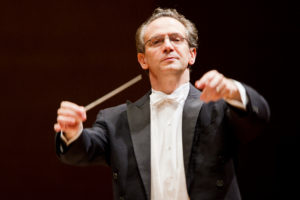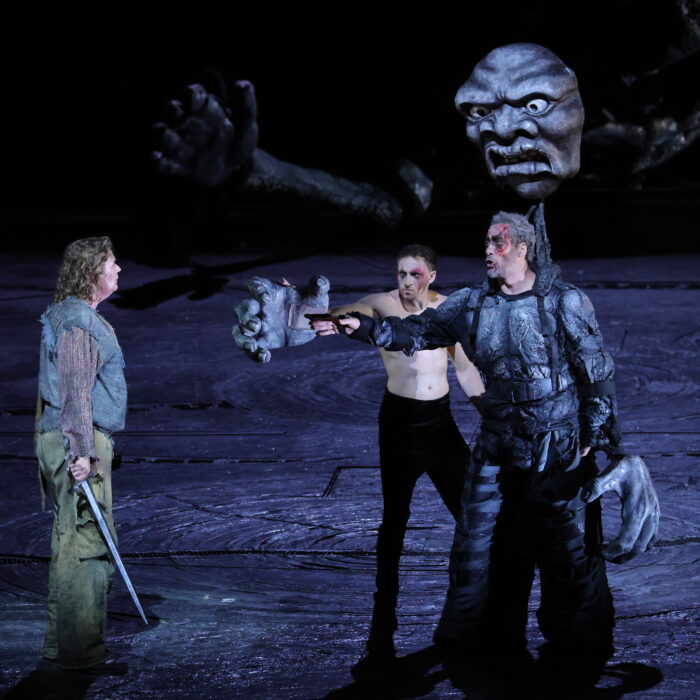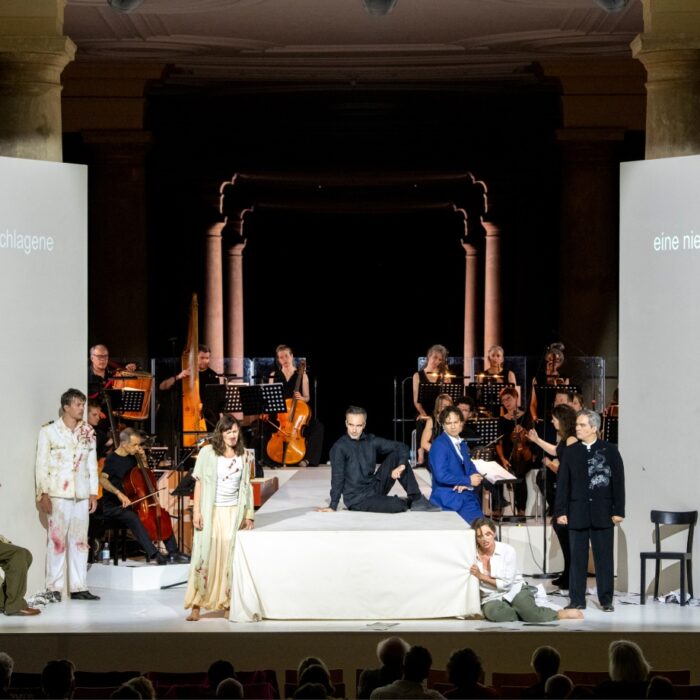
Bregenz Festival 2019 Review: Verdi’s Messa da Requiem
Fabio Luisi & Powerful Vocal Quartet Deliver Sublime Musicianship
By Eric Simpson(Photo: Koichi Miura/Metropolitan Opera)
With the spectacular images coming out of the Bregenz Festival’s mainstage production on Lake Constance, it can be easy to forget that there is other programming going on. But on the nights when the Bodensee is dark, the Vienna Symphony plays concert repertoire in the Festspielhaus under a guest conductor.
Monday night featured Verdi’s Messa di Requiem, in a brilliant performance led by Fabio Luisi, the music director of the nearby Zurich Opera. Luisi is naturally an experienced Verdi conductor, and his interpretation demonstrated a deep understanding of the work’s delicate position between liturgical and operatic form, mining its lyrical and dramatic elements without overwhelming the structure.
Capturing It All
Verdi’s Requiem is of course a piece of massive scope and power, conveying turbulent emotions with grand gestures and enormous musical forces. The “Dies Irae” is one of music’s most forceful and iconic expressions of pure terror, using the massed power of orchestra and chorus to portray an explosion of cosmic wrath. Luisi’s reading thrilled, creating a bracing wall of sound and maintaining a brisk tempo that pushed mercilessly forward without tumbling out of control.
Yet it’s the more intimate moments of the score that are hardest to capture, and Luisi’s mastery of these was what made this performance exceptional. In the opening bars of the introit he kept the strings to just a whisper, barely audible at all, adding warmth through the soft sighs of the chorus.
The “Rex tremendae” was particularly gorgeous in its construction, its many swelling layers producing a rich cascade of sound.
Providing Vocal Support
Luisi was helped on Monday by a superb vocal quartet, particularly Sergey Romanovsky, whose honeyed lyric tenor was an ideal weight and color for the part. Sunny and flexible, yet still full-bodied, his instrument matched even the most difficult demands of the music with its ringing top and flowing middle.
The “Hostias” was breathtaking, a warm, hazy ray of light opening up into shining brightness. He poured rich emotion into the crafting of his phrases and chose exquisite moments to push his tone for emotional effect, as in the keen pleading of the “Ingemisco.”
Maria José Siri showed off a big, broad soprano voice that was robust and colorful. Her warm caramel timbre and deep musical feeling made for a fine performance and her rendition of the “Libera me” was shot through with urgency, turning to desperation in the following lines, describing her terror in broken phrases.
Verdi has always written challenging parts for the soprano voice and this was no different, with the vocalist taking on the Requiem often tasked with an expansive range that moves from top to bottom consistently. Siri’s comfort at the top was not always optimal and often sat just out of comfortable reach for her; she occasionally sounded a little pinched in her higher reaches.
Fresh off his excellent performance in the title role of “Don Quichotte” the day before, Gábor Bretz was formidable as the bass soloist in Monday’s Requiem.
He brought the same rich burgundy voice and emotional life as he did to the stage role, striking a beautiful contrast in the “Confutatis” between a booming voice of doom and a richer, more lyrical sound, especially moving into the tearful plea of “oro supplex et acclinis.”
Mezzo-soprano Anna Goryachova, who also gave a memorable performance in Sunday’s “Don Quichotte,” as Dulcinée, began to run out of steam towards the end of the mass. Before that, though, she showed off an intensely dark, focused tone that softened at times into lush velvet. She made the start of the “Lacrimosa” especially poignant, tugging slightly at each syllable to lend extra emotional weight to the text.
The Prague Philharmonic Choir was in brilliant voice, the ensemble’s colorful sound a welcome contrast to the blinding-white sound so widespread in concert choirs. The Choir’s rich textures added depth and warmth to the music, especially in the moving fugal passages that so often pass by as just a wash of sound.
The Vienna Symphony Orchestra is not the most polished of ensembles, yet its players responded well to Luisi’s precise direction, achieving a wide variety of sound.
On the whole, it was a great opportunity to step away from the larger scale productions and just engage with one of the greatest pieces of music every written in such a visceral way.


